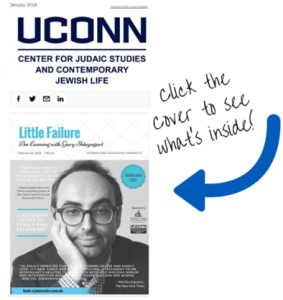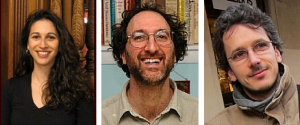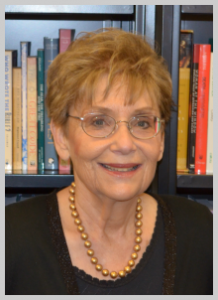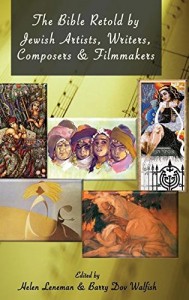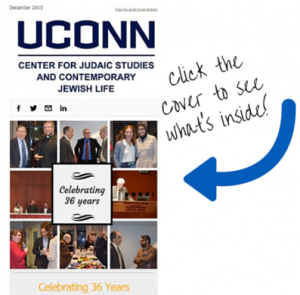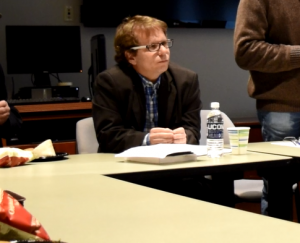 At our recent, February 17, faculty colloquium, Dr. Alon Segev presented “A Theologian in Support of National Socialism: The Case of Gerhard Kittel.” Dr. Segev, who has published extensively on Holocaust studies, modern German philosophy, and classical and modern philosophy, is currently a visiting scholar with UConn’s philosophy department and has also been a visiting scholar at Stanford, Berkeley, Pittsburgh and Arizona Universities, the University of Jerusalem and Stellenbosch University in South Africa.
At our recent, February 17, faculty colloquium, Dr. Alon Segev presented “A Theologian in Support of National Socialism: The Case of Gerhard Kittel.” Dr. Segev, who has published extensively on Holocaust studies, modern German philosophy, and classical and modern philosophy, is currently a visiting scholar with UConn’s philosophy department and has also been a visiting scholar at Stanford, Berkeley, Pittsburgh and Arizona Universities, the University of Jerusalem and Stellenbosch University in South Africa.
Dr. Segev provided an examination of the writings of influential German theologian Gerhard Kittel on the “Jewish question.” Kittel served 17 months in prison after World War II while awaiting trial for his role in spreading antisemitic propaganda. While in prison, Kittel wrote a manuscript exculpating himself from blame for any Nazi atrocities committed against the Jews. According to Kittel, his antisemitism was unlike the crass or rowdy antisemitism of the Nazis and was instead an antisemitism rooted in Christian theology.
As Dr. Segev illustrated, for Kittel, the “Jewish problem” was grounded not in economics, as Marx would have it, or in race, as Dühring argued, but in theology; and only a theological solution could be applied. Kittel maintained that the Nuremberg laws reflected the divine punishment God had meted out against the Jewish people when he dispersed them throughout the world to live at the mercy of foreign governments. Kittel used theological arguments to support the legal practices of National Socialism which denied Jews their civil rights while insisting that he had used his influence within the party to elevate Nazi ideology from its vulgar foundations.
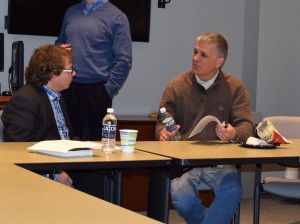 Dr. Segev’s illuminating presentation was followed by questions and discussion from the students and faculty in attendance. Our ongoing colloquium series occurs on a monthly basis and features the research of faculty and graduate students in an informal setting that allows for conversation and dialog about evolving work.
Dr. Segev’s illuminating presentation was followed by questions and discussion from the students and faculty in attendance. Our ongoing colloquium series occurs on a monthly basis and features the research of faculty and graduate students in an informal setting that allows for conversation and dialog about evolving work.
Dr. Segev was a Max-Planck Minerva Fellow in the department of philosophy at the University of Heidelberg and a DFG (Deutsche Forschungsgemeinschaft) fellow at the Martin-Buber Institute at the University of Cologne. His book, Thinking and Killing: Philosophical Discourse in the Shadow of the Third Reich (New York / Berlin: Walter de Gruyter 2013) examines the contribution of eight German thinkers to the discussion about the Holocaust and the Final Solution. His current work investigates the political readings of Descartes, Hannah Arendt, and Gerhard Kittel.
A warm thanks to Professor Segev for sharing his research with us!
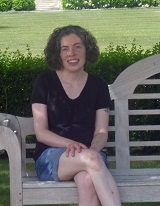
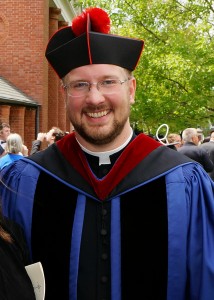
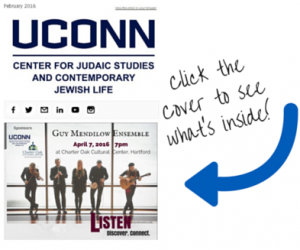
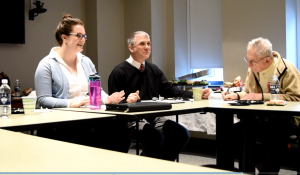 In our first faculty colloquium of the Spring 2016 semester, Abigail Miller, a third year doctoral student at the Strassler Center for Holocaust and Genocide Studies at Clark University in Worcester, Massachusetts, presented “Refugee-Survivors: Jewish Resettlement in Argentina and Holocaust Memory.” Miller, who holds the Strassler Center’s Tapper Fellowship, is currently examining the resettlement experiences of Jewish refugees in Argentina during and after the Holocaust with particular attention to the ways in which Holocaust memory and trauma affected both their resettlement and their new lives in Argentina.
In our first faculty colloquium of the Spring 2016 semester, Abigail Miller, a third year doctoral student at the Strassler Center for Holocaust and Genocide Studies at Clark University in Worcester, Massachusetts, presented “Refugee-Survivors: Jewish Resettlement in Argentina and Holocaust Memory.” Miller, who holds the Strassler Center’s Tapper Fellowship, is currently examining the resettlement experiences of Jewish refugees in Argentina during and after the Holocaust with particular attention to the ways in which Holocaust memory and trauma affected both their resettlement and their new lives in Argentina.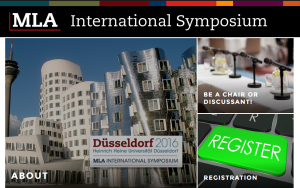 ongratulations to Dr. Nehama Aschkenasy whose paper, “Thoroughly European, Perennially an Outsider: The Hebrew Writer David Vogel (1891 -1994),” has been accepted for inclusion in the program for the Modern Language Association’s 2016 International Symposium, Other Europes: Migrations, Translations, Transformations, to be held in Düsseldorf, Germany in June 2016.
ongratulations to Dr. Nehama Aschkenasy whose paper, “Thoroughly European, Perennially an Outsider: The Hebrew Writer David Vogel (1891 -1994),” has been accepted for inclusion in the program for the Modern Language Association’s 2016 International Symposium, Other Europes: Migrations, Translations, Transformations, to be held in Düsseldorf, Germany in June 2016.